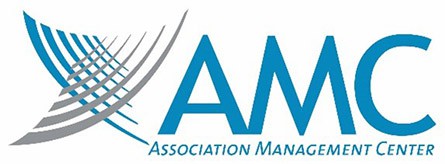Many associations have recently begun their diversity, equity, and inclusion (DEI) journeys, or double downed on their DEI efforts in significant ways. This has been a long time coming and is an important evolution of the value associations bring to our industries and professional communities.
But, for many leaders DEI may be a new part of their role and possibly something they are unprepared for, lack training in, or have little experience with. This can lead to a gap between the readiness of an association to step into the DEI space and the comfort and confidence of the association’s leaders.
Training for leaders in DEI goes well beyond educating about implicit bias and unconscious inclusion to building confidence in a new skills area.
Dr. James Pogue, a speaker at the 2021 Association Forum Welcoming Environment Summit said something that still resonates with me today, “Leadership is optional, but DEI is a part of it.”
How true. Leadership isn’t a position that was forced on us. Whether you are a leader who feels that they may have been their association’s “only option” during a time of crisis or one who fought hard to advance up each step of the leadership progression ladder, most of us don’t begin each day by thinking, “they are making me be a leader again.” We have the option and opportunity to be leaders—not the obligation.
But, in 2022, for those of us who are leaders, DEI work is no longer something we can choose to “opt out” of. DEI is now a firmly required component of leadership skills, and a commitment we must all undertake. For association leaders, becoming skilled in DEI takes training, having the confidence to engage in uncomfortable conversations, and acquiring the emotional intelligence to navigate through complicated issues with a nuanced and informed approach.
As leaders, we have always been responsible for setting the tone and culture, both internally and externally, for our associations as well as showing our consistent commitment to upholding our organization’s values. We are now responsible—in a deeper, more meaningful way—for ensuring that our organizations foster a culture of building trust, an openness to learn and evolve, and a desire to improve on DEI-related issues.
Additionally, we need to commit to ensuring that barriers for advancement are broken down throughout our organization, the leadership pipeline, the industry or professional communities we serve, and even the training programs for future professionals in the field related to our mission. And we need to do all of that while maintaining all the other areas of focus we juggle on a daily basis.
Leadership is sometimes challenging. We learn new skills, discover areas in which we lack expertise, and find ourselves having uncomfortable conversations at times. Creating a learning, evolving culture takes intention, trust building, and a desire to improve.
It also starts with us.
It is our job as association leaders to introduce and foster that shift in thinking. All of us have the ability to learn, the opportunity to evolve, and the necessity to lead others through a changing environment.
Ready to take the next step in your DEI journey? Find out how AMC can help you advance DEI in your organization with our DEI Consulting for associations.
Debbie Trueblood is a senior consultant who leads DEI Consulting at AMC. She also presents nationally on topics including governance, strategic planning, membership, ethics, and DEI.
Be the first to know about the latest articles, news, and events from AMC. Sign up for our emails!

